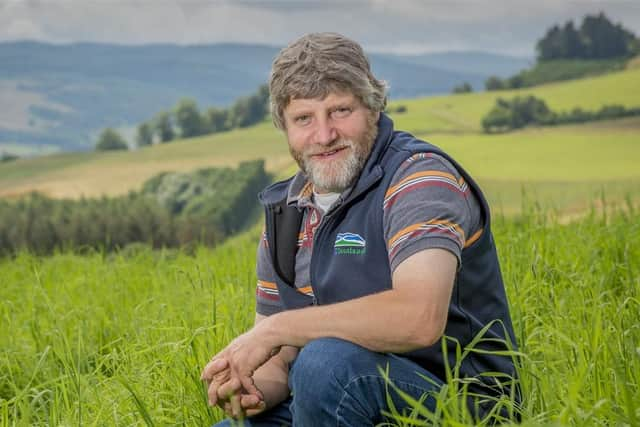Funding to ensure Scottish agriculture is global leader on climate action


Launching the National Testing Programme at NFU Scotland’s autumn conference, rural affairs cabinet secretary, Mairi Gougeon said the funding, which will be spread over the next three years, would be aimed at ensuring Scotland became a global leader in sustainable and regenerative agriculture.
The money will fund a twin track approach to help businesses transition to a system of sustainable agriculture that will reduce greenhouse gas (GHG) emissions and enhance biodiversity over the 2022 to 2024 period.
Advertisement
Hide AdAdvertisement
Hide AdThe first track will help farmers gauge where their performance stands in environmental terms by setting baseline levels through carbon audits and drawing up nutrient plans for their farms, while the establishment of a Livestock Data Performance Feedback Scheme is also planned.
The second track of the approach will see farmer focus groups take part in pilot projects to help design and test the tools and processes for rewarding climate and biodiversity outcomes. The cabinet secretary said this would create a robust understanding of how new conditions or activities could be applied to future support, and to ensure delivery of environmental outcomes in a way that supports sustainable businesses.
While details remained to be settled, the funding – which equates to the first two years of the additional Bew uplift monies coming from the UK Treasury – is to be made available from next spring but is likely to be introduced as a stand-alone scheme rather than forming part of the Single Application process.
“We can be global leaders in sustainable agriculture – we can set the global benchmark for what regenerative agriculture actually means,” Gougeon told the conference.
But the cabinet secretary, who co-chairs the Agriculture Reform Implementation Oversight Board (ARIOB) with NFUS president, Martin Kennedy also made it plain that food production would remain at the centre of policy, and once again dismissed any rumours that a cull of livestock formed any part of the administration’s approach.
Welcoming the cabinet secretary's announcements, Kennedy thanked her for reiterating her firm commitment that there were no policy plans to reduce livestock numbers in Scotland:
“One of the reasons I agreed to sit on the ARIOB was to make sure this did not happen, so finally putting that to bed is important,” he said.
He added that producers’ involvement in the body had also helped ensure the delivery of a realistic level of funding for the new schemes: “I welcome the £51m package to assist the industry in defining a baseline of where we are at present on individual farms and crofts.”
Advertisement
Hide AdAdvertisement
Hide AdKennedy said this information would not only gauge where individual farm were starting from, but would also give a national picture which he said would confirm that Scottish farmers were starting from a good place.
“This baselining will also inform the decisions we need to make in the future which in turn will showcase Scottish food production as being a major part of the solution to climate change and biodiversity, not the problem,” he added.
Comments
Want to join the conversation? Please or to comment on this article.